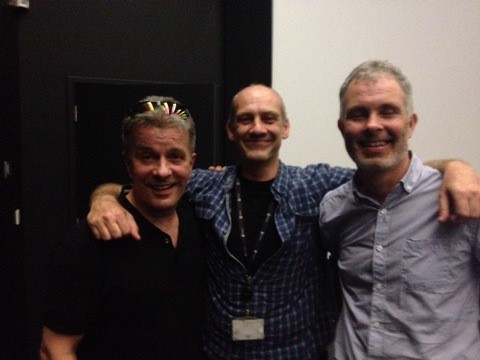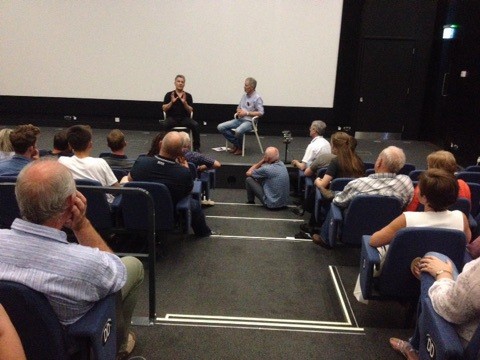“Having support from the Film Hub ensured that I could straight away define the terms of our booking to include two question and answer sessions (one in Welsh and one in English – with local film professors from the University). We could also design a bespoke flyer and poster, and pay for a Facebook advertising push.
We also made full use of an exclusive film trailer provided to us by Llion which included a message ‘in Welsh’ from one of the survivors, Ed Mosberg thanking people in Wales for coming to watch the film.”



